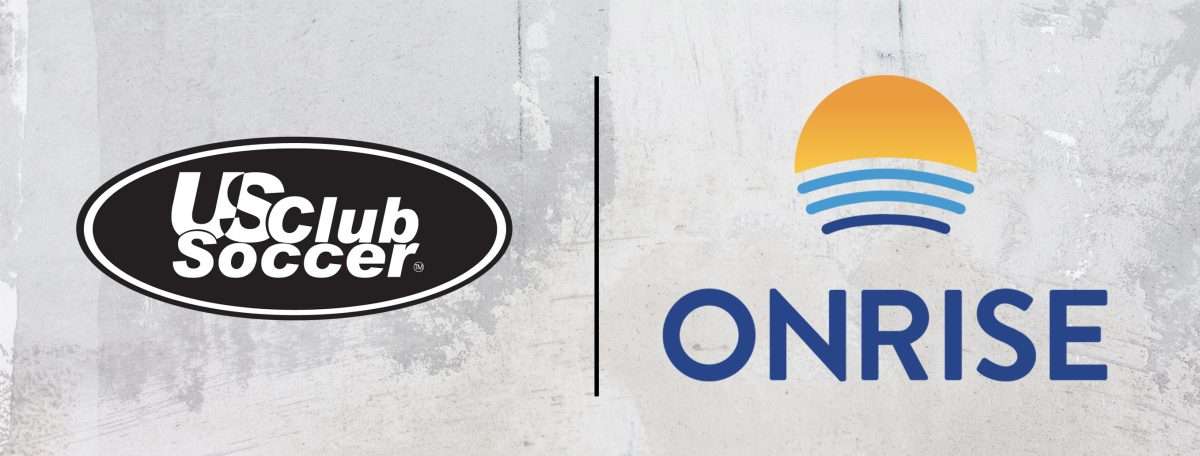Build stronger teams and communities by destigmatizing mental health (via Onrise)
Editor’s Note (May 15, 2024): This article was submitted by Onrise, which US Club Soccer has partnered with for ongoing educational resources related to mental health, as part of a Mental Health Awareness Month series. The series will cover the mind-body connection, embracing pressures and overcoming obstacles, mental health awareness and destigmatization in sports, and self-care and long-term satisfaction in sports. The author, Emanuel McGirt Jr., is the Athlete Copywriter at Onrise. Emanuel is a former collegiate and professional athlete and a current NCAA staff member. He grew up playing football and continued his career at NC State and briefly in the Canadian Football League (CFL).
At the helm of a strong team and community is an impenetrable force that controls the energy of the people entrenched in these environments, and that is a foundation rooted in trust, relationships, and empathy. When the foundation is strong, even amid unwarranted circumstances and persisting challenges, the culture can’t be shaken. When building strong teams and communities, there must be authentic relationships rooted in trust and empathy to allow for transparent and honest communication between stakeholders.
From an athletic lens, sports teams are often constructed with only physical attributes in mind when there are several mental characteristics that are just as important and vital for individual and team success. Commitment, resilience, and accountability can’t be statistically measured, and those attributes only prove to be important in moments when these traits are needed for success. Great teams, organizations and communities value the unseen traits, and that is usually what sets them apart from the rest.
Diving deeper, we know that athletes are often celebrated for their physical achievements, and oftentimes, their mental health is put off until moment’s notice, but leaders that want to build a strong culture, must realize that a holistic approach creates strong teams, communities and organizations. Valuing mental health is not an option; it is a standard.
Mental health awareness is more than just posting a quote on Instagram and sharing resources. It is about opening up your door and allowing for transparent conversations, showing players and coaches that being vulnerable is not only permitted, but encouraged. Destigmatizing mental health means talking, conversing, and communicating with others and building trust by showing them that you aren’t listening to hear but listening to understand. Creating a culture of vulnerability is crucial for developing trust and building authentic relationships with players who need to know that they can come talk to their coach or administrator about a playing problem or a personal one.
Leadership has so many layers, and one of them is empathy. Empathy fosters the ability to recognize the human first and the athlete second, and this is what builds a strong foundation and culture that is built to weather any situation. Coaches should hold players accountable, but they must also know to balance the beam and take off the hat to see their players as people. Sports are an illustration into what life truly is: ups and downs, wins and losses, and entropy and synergy, but at the end of the day, we all share the same human experience. Creating and shedding light on mental health awareness starts with those entrusted to lead, and it is a duty. How can you destigmatize mental health on your team?
Establish a culture of vulnerability: Create a culture of vulnerability, and make this known from the start. Let athletes and personnel know that that it is okay to not be okay and encourage them to speak up if they aren’t doing well mentally.
Have an open door policy: Encourage athletes, coaches, and key staff to openly discuss mental health concerns without fear of judgment or repercussion. This can be facilitated through regular check-ins, anonymous feedback mechanisms, and simply having 1 on 1s.
Lead by example: Organizational and team leaders should lead by example by openly discussing their own experiences with mental health and demonstrating a commitment to destigmatization. When leaders prioritize mental health and well-being, it sets a positive tone for the entire organization.
Educate and raise awareness: Provide comprehensive education about mental health issues, including common disorders, symptoms, and treatment options. This can be done through workshops, seminars, and informational materials. Increase awareness about the prevalence of mental health issues, and emphasize that they are common and treatable.
Provide resources and support: Ensure that athletes, coaches and key staff have access to mental health resources and support services. This may include counseling services, mental health techniques, support groups, and referrals to mental health professionals.
Great teams and organizations usually have great leaders that are not results-driven, but people-driven. While in sports, the results matter and performance is important, valuing the person first will allow them to be their best self and grow into the untapped potential they have.
ABOUT US CLUB SOCCER
A National Association member of the U.S. Soccer Federation, US Club Soccer fosters the growth and development of soccer clubs in order to create the best possible environment for players of all ages.
Anchored by Players First and its pillars of Club Development, Coaching Development, Player Development, Referee Development, Parent Engagement and Player Health & Safety, US Club Soccer offers registration, league- and cup-based competition platforms, player identification and a variety of other programming, resources and services.
US Club Soccer is sponsored by Nike, DICK'S Sporting Goods and Gatorade.
usclubsoccer.org | App | Instagram | Facebook | X | YouTube |



